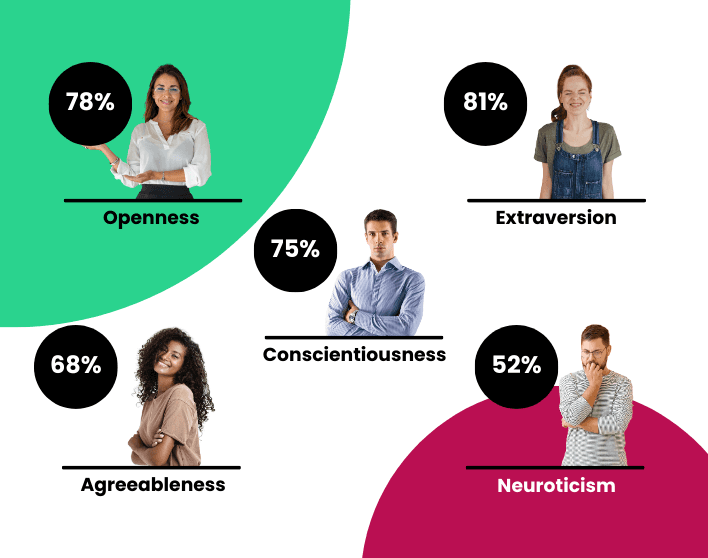The Bryq Team
HR Experts
A job qualification refers to the required experience, skills, or attributes a position requires. It is a way of defining the ideal candidate for a job posting. Write your job qualifications with skill, and this can help you attract qualified candidates to apply for your position.
What Are Job Qualifications?
Usually found in the job description, job qualifications are a list of traits required from the successful applicant for the position. A job qualification could be education level, years of experience, or a set of skills needed for the role.
These job requirements outline what the recruiter or hiring manager is looking for. It allows applicants to target their resumes and cover letters accordingly when applying for a job, to show that they meet these qualifications.
Now, in 2024, experience often reigns over qualifications, with more hiring managers prioritizing practical skills over theory.
Why Use Job Qualifications?
The purpose of adding details about the job qualifications into a job listing or position description is to show potential applicants what you’re looking for. This creates a process where unqualified applicants may opt out of applying because they don’t meet your criteria.
This is useful, as it gives you fewer job applications from unqualified people to filter through. This can save you time and money. Plus, having the job requirements listed clearly can encourage the right people to apply for the role. Many people prefer to only apply for the roles they know they have the right skills, education, and experience for because it can save disappointment later on.
How Job Qualifications Work
Job qualifications work best if you can be specific about what type of candidate you’re looking for. This helps to get candidates who very closely match your requirements. If you require a college degree, then state which one you prefer. If you want someone with experience, add how many years of experience you would like.
The applicants should then look at this list and address every requirement they possess in their cover letter. This makes it as easy as possible for you to tick off whether they meet all of the criteria.
if you are willing to be flexible on some of the requirements, then it helps if you separate these. You will notice that most position descriptions contain ‘required job qualifications’ and ‘preferred job qualifications’. That’s so that candidates know which ones are the most important. For example, you may be interested in hiring someone without a lot of experience, as long as they have the right degree. Or it may be crucial that they have the people skills required, and you might overlook the degree if they have the skills you’re looking for.
Types of Job Qualifications
Don’t know what job qualification you’re looking for? Here is a list of job qualification types that are important in 2024 to get you started. Remember, however, that your specific requirements will vary across the level of each role as well as the type of job it is.
Educational Requirements
Many positions require the applicants to have minimum qualifications as a job qualification. This might be a high school diploma or college degree. Sometimes, it requires a degree in a specific field, especially for highly technical or high-level positions.
Work Experience
The experience that counts as a job qualification is usually work experience in a relevant field or similar role. If you’re hiring for an entry-level position, this can require 0 -3 years of experience. So, even if the candidate has had no previous employers, they could still be in the running for the job. Typical relevant experience for a customer service position, for example, is likely to include previous work in customer service.
Soft Skills
Soft skills are a crucial component of how good someone is at their job, especially in people-centered roles. Skills such as problem-solving or communication skills can determine whether a recruit flourishes in their new role or not.
If you’re wondering how you will screen for soft skills, don’t worry, because they are measurable. You can use personality assessments, for example, to determine the level to which candidates possess certain soft skills.
Physical Abilities
Physical ability requirements are only suitable for certain types of roles. As long as it is relevant to the role, however, you can add physical ability as a job qualification. An example of when this would be relevant is in warehouses where the candidates must be able to pack, lift, and stack boxes all day long. Policemen also have to pass a fitness test before they qualify for duty. Don’t add this requirement for a desk job or other role where it is not relevant. This can be seen as discrimination otherwise.
Languages Spoken
Certain roles will require employees to speak more than one language. Call center roles, for example, can certainly benefit from employees who speak numerous languages well. In this scenario, you may add a job qualification such as being able to speak a second language up to a certain level. There are tests that people can do to prove their level of ability in a certain language so you will know how fluent they are.
Particular Knowledge
Many roles will require particular knowledge that will be used in the role. This could be the ability to use certain software or other knowledge obtained through experience or research. Fields such as IT, engineering, and research often require specific knowledge about the subject area of the position. One example would be a job listing for an engineer who specializes in creating car parts. Not all areas of engineering deal with creating car parts, so it may be listed as a separate job qualification.
Now that you know the what, how, and why of job qualifications, how will you change your job descriptions? Make sure that anything you add as a requirement is fully relevant to the day-to-day work of the position you are hiring for. Otherwise, it could be disputed that you are discriminating in your hiring practices. As long as you stick to relevant qualifications, however, you will be fine.









